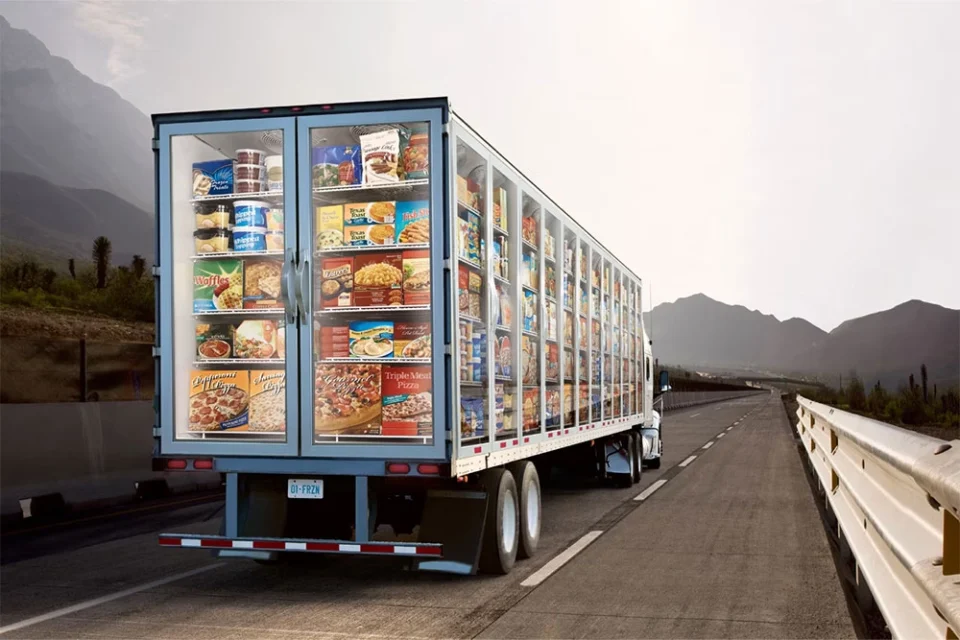Every time you bite into a crisp apple, enjoy a creamy wheel of brie, or sip on a cold glass of milk, you’re tasting more than just good food. You’re experiencing the complex, behind-the-scenes choreography of modern food transportation. From the farm to your fork, every step of that journey relies on precision, technology, and logistics. And at the heart of it all are food transportation companies that make it happen—safely, efficiently, and on time.
Why Food Transportation Is Different
Unlike most other products, food is perishable. It’s sensitive to time, temperature, handling, and hygiene. One mistake in the chain, and an entire shipment could spoil, be rejected, or worse, make people sick. This makes food logistics not only complicated but critical.
Transporting frozen meat is a vastly different challenge from moving freshly picked berries. Some foods require consistent refrigeration from origin to delivery. Others need to be kept dry, upright, and protected from crushing. That’s why the best food transportation companies are more than just truck drivers—they are experts in temperature control, food safety regulations, inventory tracking, and risk management.
Building a Cold Chain that Doesn’t Break
A major pillar of modern food transportation is the cold chain. This refers to the unbroken temperature-controlled supply chain that begins the moment food is harvested or processed and continues through storage, shipping, and final delivery. It’s not just about using refrigerated trucks. It’s about designing systems that prevent temperature fluctuations, avoid delays, and ensure that food quality and safety are never compromised.
Sensors and IoT (Internet of Things) technology now allow real-time monitoring of shipments. Logistics teams can track humidity, temperature, and even GPS location to make adjustments on the fly. If a truck is delayed or a cooler fails, alerts can be triggered immediately. For companies dealing with dairy, seafood, or pharmaceuticals, these tools are essential.
What Separates Great Transporters from the Rest
In a market flooded with logistics providers, how do you separate the capable from the exceptional? The best food transportation companies tend to have a few things in common:
- Specialized Equipment
From multi-temperature trucks to custom containers for delicate produce, top-tier transporters invest in the right tools for the job. - Regulatory Compliance
Food transportation is governed by strict rules, including the U.S. FDA’s Food Safety Modernization Act (FSMA) and similar laws worldwide. Top carriers understand these rules and build systems that meet or exceed them. - Transparency and Tracking
Customers increasingly demand real-time updates on shipments. The best companies provide easy-to-use tracking tools and transparent communications. - Cleanliness and Sanitation
Regular cleaning schedules, documentation, and driver training all ensure that vehicles are sanitary and contamination risk is low. - Trained Staff
Food handling isn’t intuitive. Drivers and logistics professionals must be trained on how to prevent cross-contamination, keep products within safe temperatures, and respond to emergencies.
Sustainability Is Taking the Wheel
As concerns about climate change and food waste grow, food transportation is also evolving to become more sustainable. Some companies are switching to electric or hybrid trucks. Others optimize routes using AI to reduce emissions and idle time. Reusable packaging and better planning help reduce waste and carbon footprints.
Sustainability also plays a role in preserving product quality. By reducing transit time and energy use, companies can improve freshness and reduce spoilage—benefitting both the environment and the bottom line.
Risk in Transit: What Could Go Wrong?
Even with the best planning, food transportation is not without its risks. Weather disruptions, mechanical failures, and traffic delays can all cause shipments to arrive late or compromised. In those moments, experience matters. The best food transportation companies don’t just plan for success, they prepare for setbacks. Contingency plans, alternate routes, backup refrigeration, and rapid response teams are all part of the job.
This risk management is not only about protecting the product. It’s about protecting the brand reputation of food producers, distributors, and retailers. In today’s social media age, one poorly handled shipment can lead to negative press or even lawsuits.
Adapting to a Changing Consumer Market
The explosion of e-commerce and direct-to-consumer food delivery has added a new layer of complexity. From meal kits to grocery deliveries, more food than ever is being shipped directly to customers’ doors. That means smaller shipments, faster turnaround, and more demand for last-mile solutions that still meet food safety standards.
Food transportation companies are adapting by building out micro-distribution hubs, partnering with delivery platforms, and offering value-added services like packaging, sorting, and returns management.
Looking Ahead: What’s Next in Food Logistics?
The food transportation industry is only becoming more sophisticated. Expect to see:
- More automation in warehousing and inventory management
- AI-powered route optimization that balances speed, cost, and fuel usage
- Blockchain technology for improved traceability and accountability
- Expansion of drone and robotic delivery in urban centers
All of this innovation aims to solve the same core challenge: getting food where it needs to be, in perfect condition, and as quickly as possible.
Final Thoughts
Food transportation is one of those invisible industries that quietly powers daily life. It’s easy to overlook how that strawberry got to your smoothie or how your favorite cheese arrived on the shelf, but behind every bite is a sophisticated network working around the clock.
Whether you’re a grower, supplier, restaurant, or consumer, choosing the right partners for food logistics matters. The best food transportation companies do more than move goods—they preserve flavor, freshness, and safety from start to finish.
In a world where timing, temperature, and trust are everything, logistics providers who specialize in food are more valuable than ever. With smart systems, trained staff, and a commitment to quality, they make sure that good food gets where it needs to go—fast, fresh, and safe.

